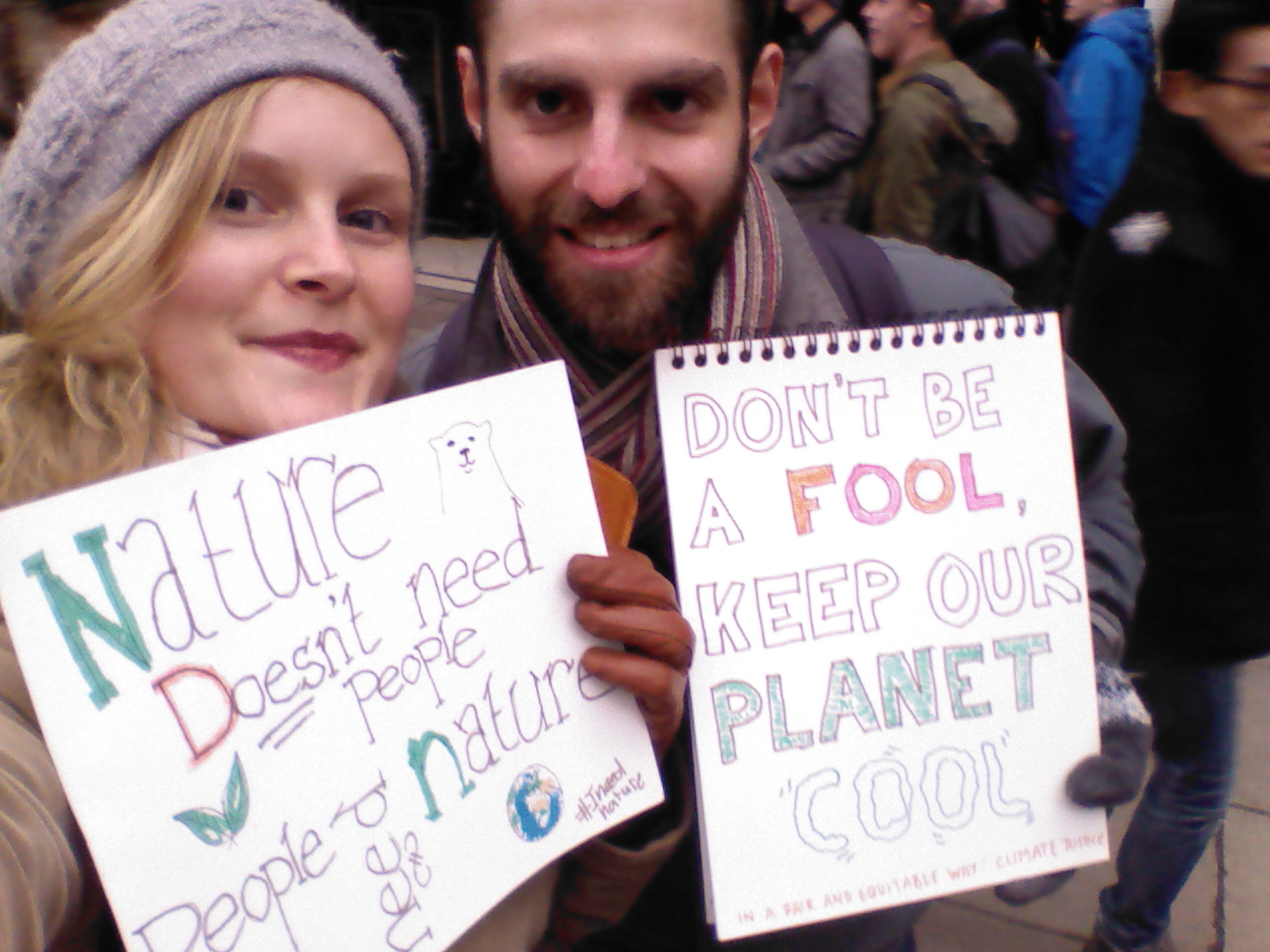Less than a week after the 21st Conference of the Parties (COP21) in Paris, The London School of Economics hosted a panel discussion, chaired by Lord Nicholas Stern to reflect on the apparent success of the event.
Bleary eyed from what was no doubt a manic fortnight in France, an impressive panel lined up to provide insight from industry, academia and government. The line-up had all attended COP21, and consisted of:
- Peter Betts – Direction of International Climate Change at the Department of Energy and Climate Change
- Anne Bolle – Senior Advisor on Climate Change Policy at Statkraft
- Zoe Knight – Managing Director of Climate Change Centre at HSBC
- Alina Averchenkova – Co-Head of Climate Policy at the Grantham Research Institute
Lord Stern began by reflecting on just how significant an achievement it was to obtain such a bold climate agreement signed by 195 countries, an accomplishment that sees other such global agreements throughout history pale into comparison. This was a sentiment shared by all of the panel members, unanimously agreeing that the outcome of COP21 was at the very top end, and in places above any prior expectations as to how successful it could have been. Broadly, the topics of discussion could be split into three categories – What happened before and during talks to generate such an ambitious agreement, and what will have to happen after the COP21 to ensure its successful implementation.
Leading up to COP21
Homage was paid first and foremost to recent COP meetings, in particular Durban (COP17) and Lima (COP20). Lord Stern cited Durban as the birthplace of an increasingly collective effort between the developed and developing nations, especially larger ones such as China and India. Countries such as these began to acknowledge that the transition to a low carbon economy is an appealing prospect, and is essentially the only feasible option given the deeper understanding of the realities of climate change we now possess. Issues of air quality in China, which have received notable media coverage of late, generate public pressure for the switch to renewable energies, which a number of panel members feel is a move that is now more affordable and effective than ever.
Likewise, Lima was praised for inviting nations to submit Intended Nationally Determined Contributions (INDCs), a series of documents outlying what various countries post 2020 climate ambitions are. This provided negotiators with a base line climate commitment from submissions reflecting targets from 185 countries, and served to provide the smaller parameter of expectations held by negotiators leading up to talks.
Both Lord Stern and Zoe Knight said that the past 18 months of discussions between USA and China, both of whom are undoubtedly massively important players in global climate politics, were of critical importance. Given the adversarial nature that often characterises this complex relationship, and with fingers pointed at China for the hindrance of previous discussions (in particular the disastrous COP15 in Copenhagen), the importance of having them on board at Paris cannot be understated.
During COP21
The panellists portrayed an event that from the off had a very different feel to COP’s before it. The presence of 150 leaders of state from the first week of the event was symbolic of the importance levied on the discussions. This was in stark contrast, Lord Stern noted, from Copenhagen, where national leaders simply came to ‘clean up the mess’ at the end of the meeting. A focus on combined actions, and ‘ramping up’ countries INDCs as opposed to sanctions may have generated the trusting, optimistic feeling around the talks that many of the panellists commented on. This feel good factor may have been furthered still by talks commencing with what Peter Betts felt were a more honest set of expectations, based around a realistic range of possible outcomes – a lesson learnt he felt from Copenhagen.
The USA may not have always been synonymous with successful climate policies, evident through their objection to the otherwise widely agreed upon Kyoto Protocol. However, Mr Betts spoke very highly of their role in ensuring talks went smoothly, referring to the massive time and capital invested by the USA into the proceedings. This was second he said only to the French, also praised not only for their hosting abilities but their diplomatic approach to creating an inclusive environment in which discussions could be held. He also noted the importance of the USA’s role in alleviating concerns of vulnerable nations about loss and damage, a primary focus of many for obvious reasons. By cementing agreements early on loss and damage, Betts said, it facilitated the vulnerable nations to focus negotiating efforts on mitigation, helping move the process forward.
As lead negotiator for Britain and the EU, Betts was well placed to provide insight on Britain’s aims going into the discussions. Three that received special mention were:
- Implementation of a 5 year review cycle
- Improved transparency and accounting mechanisms
- Legally binding agreements wherever possible
He appeared content that these have been achieved, which is no mean feat considering the difficult balancing act of keeping the USA on board, and facing larger developing nations that often wanted none of the above through fears of infringement on national sovereignty.
Moving Forward from COP21
On paper, even the most sceptical amongst us would struggle to say that COP21 was not a relative success, although saying that global temperature increase will be limited to 2, with an aim of 1.5 degrees and actually doing it are quite clearly two very different things. Whilst nothing can be taken away from the accomplishments of COP21, leaders are now faced with difficult questions of implementation. As Alina Averchenkova pointed out, emission cuts in the INDCs submitted amount to 55 gigatonnes, with 40 needed to achieve the desired limitation of global temperature increase to well below 2 degrees. Whilst not insurmountable, she expressed the necessity for the trust built in recent years to continue for implementation to be successful. Also, increased public awareness and improved decision making structures in developing countries are very important factors in reaching the set targets.
Many of the further suggestions emerging from the panel on how to successfully implement the COP21 agreement were rooted within the market. Learning how to effectively encourage and spend private investments, carbon pricing and increasing knowledge amongst the financial sector on climate change were all named as means of doing so. Zoe Knight felt that the commitments made in Paris will break the cycle of blame that emerges between industry and the government, as industry can now feel more comfortable investing in a low carbon economy thanks to a more concrete, long term commitment from world leaders. She also believes that the knock on effect of China delivering on their cuts (whose signals she felt, suggest they will) will have a knock on effect on countries that export high carbon products to China, meaning a rethink amongst them on how they do business.
Having realistic expectations was apparently vital to the COP21 proceedings, and I feel also necessary as an audience member of this panel debate. Beyond the mutual backpattery, I came out feeling that given the calibre of speakers I hadn’t gained quite as much insight as I may have liked. Difficult questions from the crowd were on occasion tactfully (and sometimes not so tactfully) dodged. This included issues such as continued fossil fuel subsidies and Britain’s recent cuts to renewable investment, which are incongruous with the glowing picture of our mitigation ambitions painted by Mr Betts. Something I did feel was interesting however was the makeup of the audience. It was not full of the hemp laden, academic types that one may expect at such an event, but suit wearing, industry representatives, which may bolster the rhetoric that the private sector is starting to pay climate change the attention it deserves, and desperately requires.
It is probably unfair to expect answers to tough policy questions, especially within seven days of such a historic and no doubt arduous event. As Zoe Knights pointed out, it is important to remember that Paris is simply a first step towards tackling climate change, not the solution. In this case however, scepticism is healthy, and necessary if climate change is to be kept a priority in the months and years to come.
By Callum Nolan, Leverhulme Doctoral Scholar




